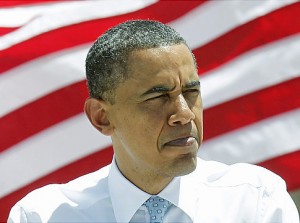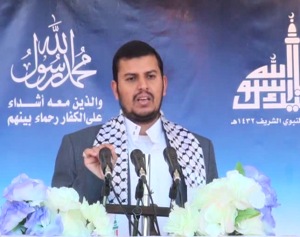A tectonic shift has occurred in the U.S.-Saudi relationship. Despite significant pressure from the Obama administration to remain on the sidelines, Saudi leaders sent troops into Manama in March to defend Bahrain’s monarchy and quell the unrest that has shaken that country since February. For more than 60 years, Saudi Arabia has been bound by an unwritten bargain: oil for security. Riyadh has often protested but ultimately acquiesced to what it saw as misguided U.S. policies. But American missteps in the region since Sept. 11, an ill-conceived response to the Arab protest movements and an unconscionable refusal to hold Israel accountable for its illegal settlement building have brought this arrangement to an end. As the Saudis recalibrate the partnership, Riyadh intends to pursue a much more assertive foreign policy, at times conflicting with American interests.
The backdrop for this change are the rise of Iranian meddling in the region and the counterproductive policies that the United States has pursued here since Sept. 11. The most significant blunder may have been the invasion of Iraq, which resulted in enormous loss of life and provided Iran an opening to expand its sphere of influence. For years, Iran’s leadership has aimed to foment discord while furthering its geopolitical ambitions. Tehran has long funded Hamas and Hezbollah; recently, its scope of attempted interference has broadened to include the affairs of Arab states from Yemen to Morocco. This month the chief of staff of Iran’s armed forces, Gen. Hasan Firouzabadi, harshly criticized Riyadh over its intervention in Bahrain, claiming this act would spark massive domestic uprisings.
Such remarks are based more on wishful thinking than fact, but Iran’s efforts to destabilize its neighbors are tireless. As Riyadh fights a cold war with Tehran, Washington has shown itself in recent months to be an unwilling and unreliable partner against this threat. The emerging political reality is a Saudi-led Arab world facing off against the aggression of Iran and its non-state proxies.
Saudi Arabia will not allow the political unrest in the region to destabilize the Arab monarchies — the Gulf states, Jordan and Morocco. In Yemen, the Saudis are insisting on an orderly transition of power and a dignified exit for President Ali Abdullah Saleh (a courtesy that was not extended to Hosni Mubarak, despite the former Egyptian president’s many years as a strong U.S. ally). To facilitate this handover, Riyadh is leading a diplomatic effort under the auspices of the six-country Gulf Cooperation Council. In Iraq, the Saudi government will continue to pursue a hard-line stance against the Maliki government, which it regards as little more than an Iranian puppet. In Lebanon, Saudi Arabia will act to check the growth of Hezbollah and to ensure that this Iranian proxy does not dominate the country’s political life. Regarding the widespread upheaval in Syria, the Saudis will work to ensure that any potential transition to a post-Assad era is as peaceful and as free of Iranian meddling as possible.
Regarding Israel, Riyadh is adamant that a just settlement, based on King Abdullah’s proposed peace plan, be implemented. This includes a Palestinian state with its capital in East Jerusalem. The United States has lost all credibility on this issue; after casting the sole vote in the U.N. Security Council against censuring Israel for its illegal settlement building, it can no longer act as an objective mediator. This act was a watershed in U.S.-Saudi relations, guaranteeing that Saudi leaders will not push for further compromise from the Palestinians, despite American pressure.
Saudi Arabia remains strong and stable, lending muscle to its invigorated foreign policy. Spiritually, the kingdom plays a unique role for the world’s 1.2 billion Muslims — more than 1 billion of whom are Sunni — as the birthplace of Islam and home of the two holiest cities. Politically, its leaders enjoy broad domestic support, and a growing nationalism has knitted the historically tribal country more closely together. This is largely why widespread protests, much anticipated by Western media in March, never materialized. As the world’s sole energy superpower and the de facto central banker of the global energy markets, Riyadh is the economic powerhouse of the Middle East, representing 25 percent of the combined gross domestic product of the Arab world. The kingdom has amassed more than $550 billion in foreign reserves and is spending more than $150 billion to improve infrastructure, public education, social services and health care.
To counter the threats posed by Iran and transnational terrorist networks, the Saudi leadership is authorizing more than $100 billion of additional military spending to modernize ground forces, upgrade naval capabilities and more. The kingdom is doubling its number of high-quality combat aircraft and adding 60,000 security personnel to the Interior Ministry forces. Plans are underway to create a “Special Forces Command,” based on the U.S. model, to unify the kingdom’s various special forces if needed for rapid deployment abroad.
Saudi Arabia has the will and the means to meet its expanded global responsibilities. In some issues, such as counterterrorism and efforts to fight money laundering, the Saudis will continue to be a strong U.S. partner. In areas in which Saudi national security or strategic interests are at stake, the kingdom will pursue its own agenda. With Iran working tirelessly to dominate the region, the Muslim Brotherhood rising in Egypt and unrest on nearly every border, there is simply too much at stake for the kingdom to rely on a security policy written in Washington, which has backfired more often than not and spread instability. The special relationship may never be the same, but from this transformation a more stable and secure Middle East can be born.























